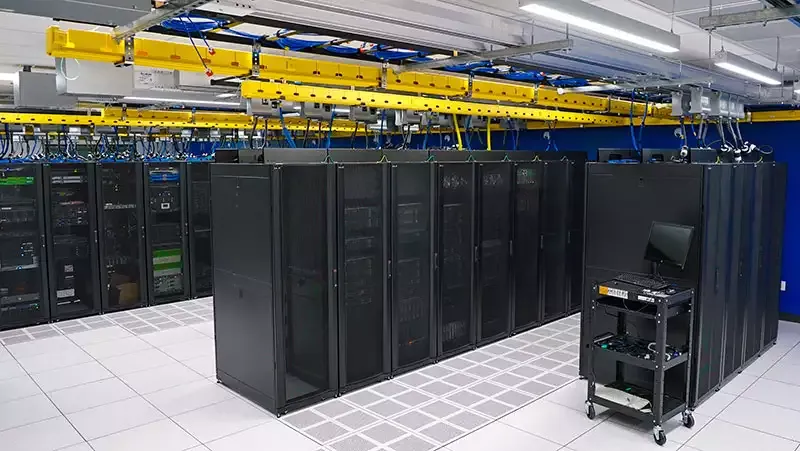How Do I Secure My Business Network?
Securing your business network is vital for protecting sensitive data, ensuring business continuity, and preventing costly disruptions. As cyber threats become more sophisticated, businesses must adopt comprehensive network security measures to defend against potential breaches.
In this blog, we’ll cover essential steps to secure your business network and safeguard your network resources from security vulnerabilities.
1. Monitor and Manage Network Traffic
One of the first steps in securing your business network is to actively monitor traffic. By keeping a close eye on the data flowing in and out of your network, you can detect abnormal activity that could indicate potential threats.
Network traffic analysis tools help you understand usage patterns, detect unauthorized access, and identify security threats before they become serious issues.
2. Implement Strong Network Security Measures
Securing your network requires a robust mix of hardware and software technologies. Firewalls, antivirus software, and intrusion prevention systems (IPS) are essential tools for blocking unauthorized access and monitoring for suspicious activity.
Network access control (NAC) solutions also play a key role by limiting who can access your network and what resources they can reach, ensuring that only authorized personnel can access sensitive areas.
3. Regularly Update Hardware and Software
Outdated hardware and software can be a significant source of security vulnerabilities. Hackers often exploit old systems with known weaknesses to launch attacks. Regular updates to your hardware and software technologies ensure that security patches are applied promptly, closing gaps that could be exploited.
Always update your network devices such as routers, switches, and access points, as well as operating systems and security software.
4. Train Employees on Network Security
Your employees are a crucial part of your network security strategy. Ensuring they are properly trained on best practices can prevent accidental security breaches. Regularly train employees to recognize phishing attacks, avoid unsafe downloads, and securely handle sensitive data.
By fostering a culture of security awareness, you can greatly reduce the risk of human error leading to security incidents.
5. Secure Mobile Devices
With the increasing use of mobile devices in the workplace, securing these endpoints is critical. Mobile devices, such as smartphones and tablets, provide new opportunities for cybercriminals to gain access to your network. Implement strong mobile device security policies, such as requiring encryption and enabling remote wiping capabilities.
Use mobile device management (MDM) solutions to ensure that devices accessing your network comply with your security standards.
6. Control Network Access
Controlling who has access to your network is a key component of a solid network security plan. Using network access control (NAC) technologies, you can ensure that only trusted devices and users can connect to your network. Enforce strict user authentication protocols, such as multi-factor authentication (MFA), to reduce the risk of unauthorized access.
In addition, utilize network segmentation so that critical systems are separated from general traffic, limiting access to sensitive network resources.
7. Deploy Intrusion Prevention Systems (IPS)
Intrusion prevention systems (IPS) are a valuable addition to your network security defenses. These systems continuously monitor your network for malicious activity and automatically block detected threats before they can cause harm.
By integrating an IPS into your security architecture, you can respond to security breaches in real-time, minimizing the impact of potential attacks.
8. Encrypt Sensitive Data
Data encryption is essential for securing sensitive information, especially when it is transmitted across the network. Encryption ensures that even if network traffic is intercepted, the data remains unreadable to unauthorized parties.
Apply encryption to both stored data and data in transit, including communications between employees and external clients or vendors.
9. Implement Network Security Solutions for Remote Access
As remote work becomes more prevalent, securing remote access to your network is more important than ever. A virtual private network (VPN) is a must for encrypting data and ensuring that remote employees connect securely. Additionally, network access control measures can help limit what remote workers can access, ensuring that sensitive information remains protected.
10. Regularly Back Up Your Data
No network security strategy is complete without a reliable backup plan. In the event of a security breach or hardware failure, having recent backups of your data ensures that your business can recover quickly. Schedule regular backups of all critical data and store these backups securely, both on-site and in the cloud.
Secure Your Network with Login’s Expertise
At Login, we specialize in providing comprehensive network security solutions that protect your business from threats and vulnerabilities. From intrusion prevention to network access control and mobile device security, our team can help you implement robust network security measures tailored to your needs. We’ll also train employees to recognize threats and assist with monitoring network traffic, ensuring that your business stays secure.
Contact us today or visit our website to learn more about how we can protect your network and critical resources.



